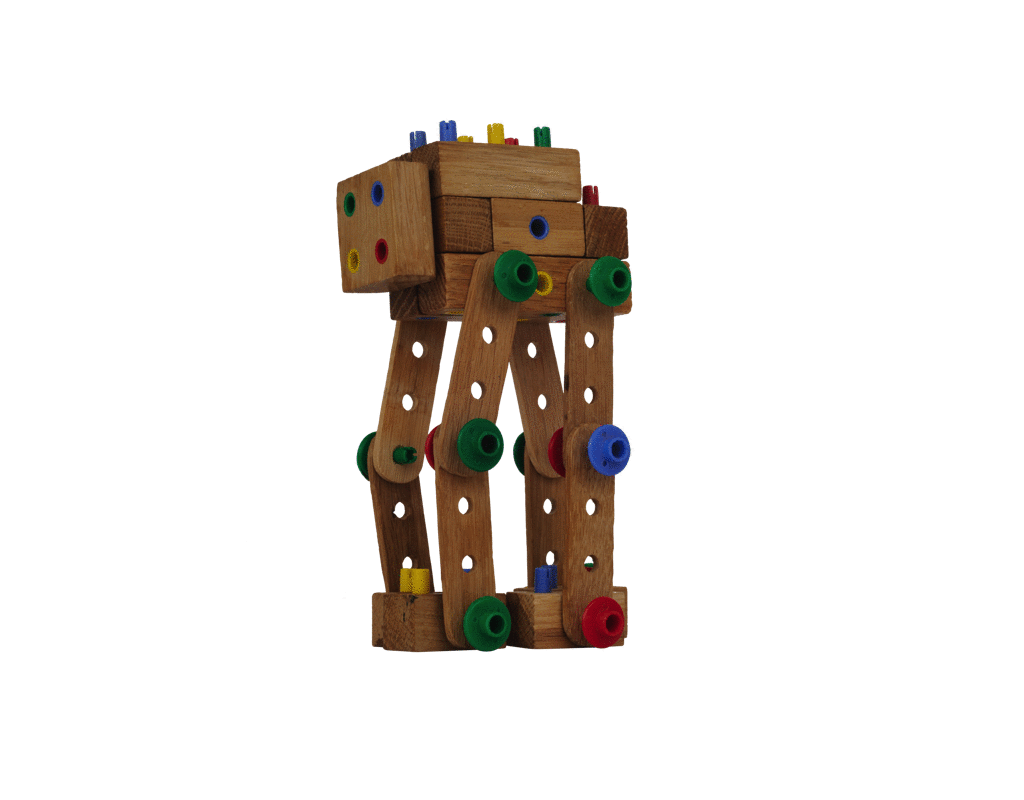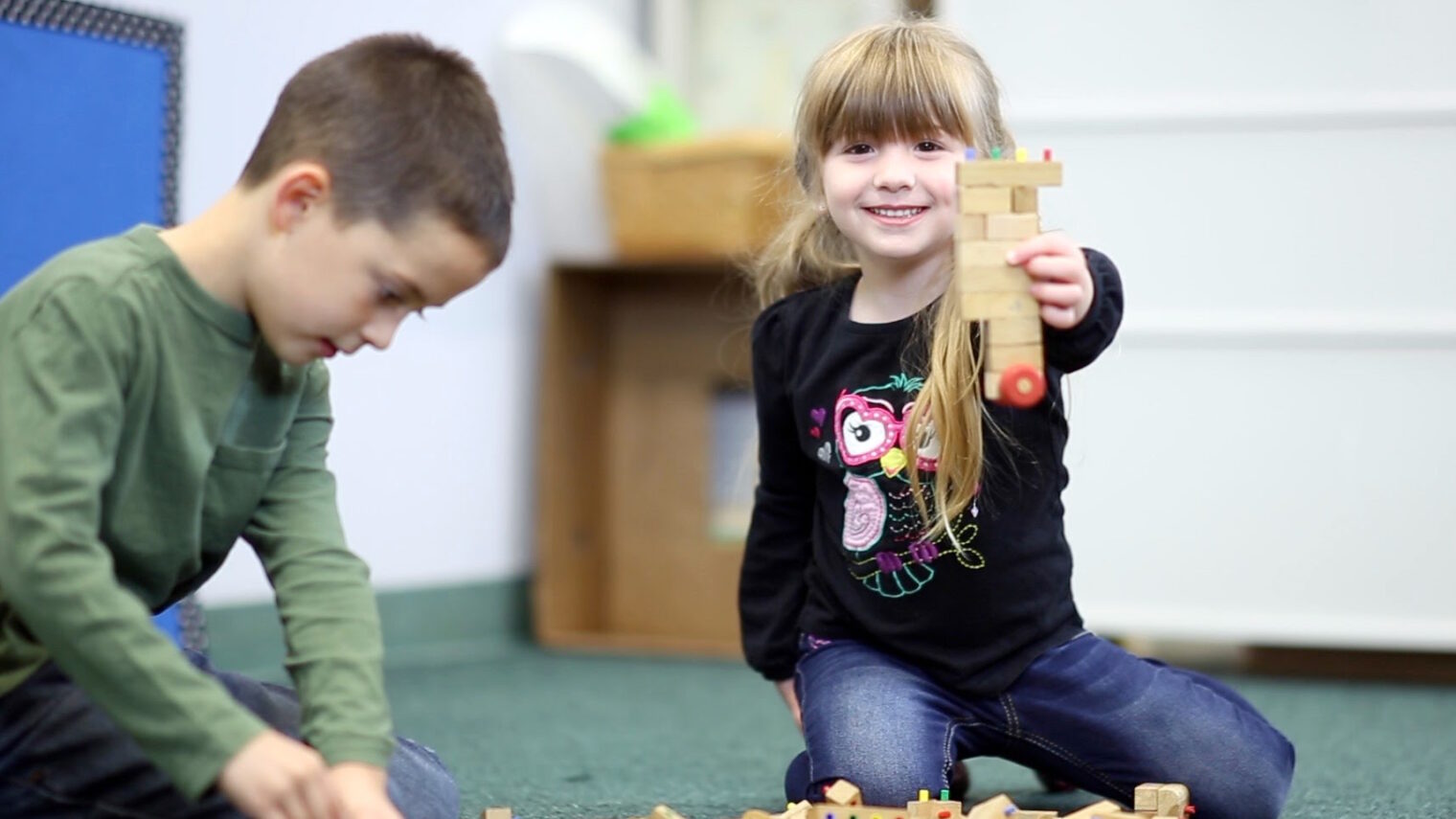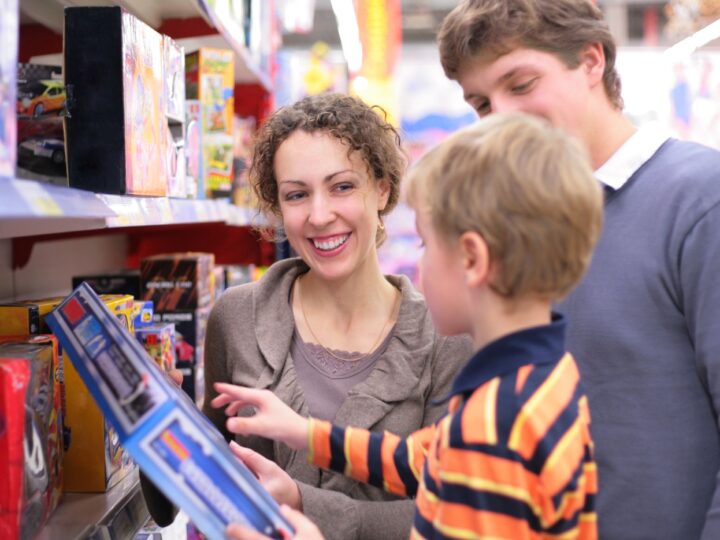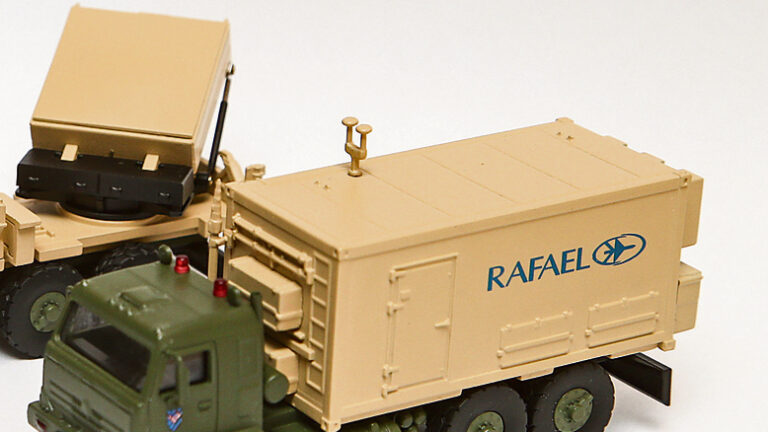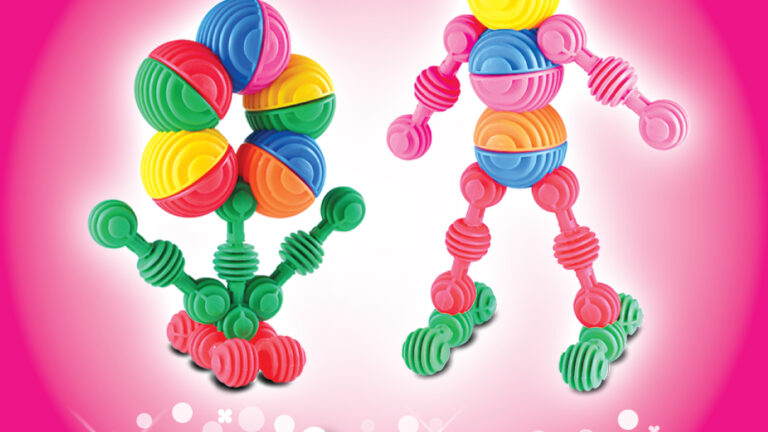If Toy Story‘s Woody could warn all the plastic toys and apps currently on the market, he’d probably say: “Ollies Blocks are here. This is the perfect time to panic!”
Ollies Blocks, currently being funded on a Kickstarter campaign, are interconnecting oak-wood blocks that demand imagination.
They look like Tinkertoys before that iconic wooden construction set turned plastic. They also have a Lego-like or Meccano-like feel. Yet, Ollies Blocks encourage children to plan and construct creations without preset limitations.
“Building blocks usually come with instructions. First you take piece number one and put it with piece number two, and then you take piece three and put it with piece four. We’re against that. We believe a child should learn how things connect by him or herself,” says Israeli entrepreneur Haran Wolfovitz Yaffe, who hopes to bring Ollies Blocks to the toy market.
“We will give pictures of what you can build but we won’t tell you how to build it. We want children to teach themselves how to go from a pile of blocks on the floor to a castle. We want them to truly be master builders. We don’t want them to be rule followers.”
Moreover, constructions made of these wooden blocks with connector pegs can be altered midway through. “You can start with a rectangle and change it into a circle. There is nothing that will limit your imagination,” he says.
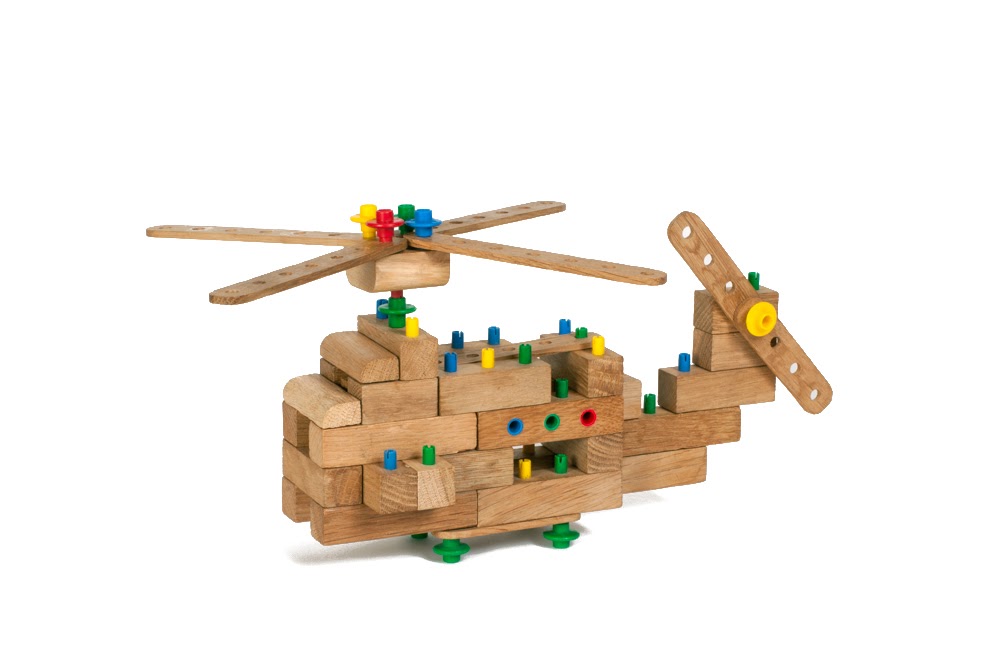
If Ollies Blocks seem familiar, that’s because they’re the new version of Yael wooden building blocks, an Israeli toy briefly sold in the US under the name Stix-Stax in the 1980s and currently on exhibit at the Nuremberg Toy Museum in Germany.
The original blocks were invented by Wolfovitz Yaffe’s father, Roni Yaffe, at the family’s now defunct toy manufacturing plant in Karmiel. Roni named the toy company Yael, after his eldest daughter.
Taking a page from his father, Wolfovitz Yaffe, who left Silicon Valley to revive his family’s toy business in the Galilee, named his blocks Ollies — the nickname of his two-year-old daughter, Olivia.
“I was living the dream but I was looking at a screen all day long. I was an app developer, and I realized how wrong it is for my daughter, Olivia, to grow up like this,” Wolfovitz Yaffe, whose app, Fansino, won the prestigious Best App of the Year award at the 2015 Mobile World Congress, tells ISRAEL21c.
He and his gemologist wife, Carissa, decided to enter the toy market because they wanted to have more family time. They also wanted to bring back some of the creative fun from their childhoods – free of plastic, artificial sounds and screen dependency.
“Today all the toys are made of plastic, with lights and sounds, and look like smartphones. There’s no actual thinking going on. My generation grew up with toys like this and we’re so excited to bring this back,” says Wolfovitz Yaffe, 33. “Today, we’re trying to teach our kids to code instead of teaching our kids to play and learn. But the paradigm is going to shift.”
From blocks to a castle
Wolfovitz Yaffe says his parents were not gung-ho about reviving the family toy business at first. They run Honny’s Circle boutique hotel in the vegetarian holiday village of Amirim in the Galilee and weren’t sure they wanted a career change.
Roni Yaffe, a serial inventor also known for discovering the DiNA+ (Single Memory Unit), made a deal with his son: Raise $100,000 through crowdfunding, and we’ll help you revive the toy business.
While Wolfovitz Yaffe admits that raising funds via the crowd can be challenging, he accepted his dad’s condition because “it’s the only way to keep the company as a family business. Once you have investors it’s not your company anymore,” he tells ISRAEL21c. “We wanted to avoid someone telling us that we had to manufacture in the Far East. And we wanted the quality to stay as is.”
The quality, says Wolfovitz Yaffe, is indisputable.
“Ollies Blocks look the same as the Yael blocks and are still made out of solid oak. The biggest change is that the way we manufacture it now requires much higher precision. We invented the machinery to allow for 200th of a millimeter deviation. That’s high-tech,” he says, noting that the connector pegs in the new blocks are not removable and thus less of a swallowing hazard. “And everything is Israeli made.”
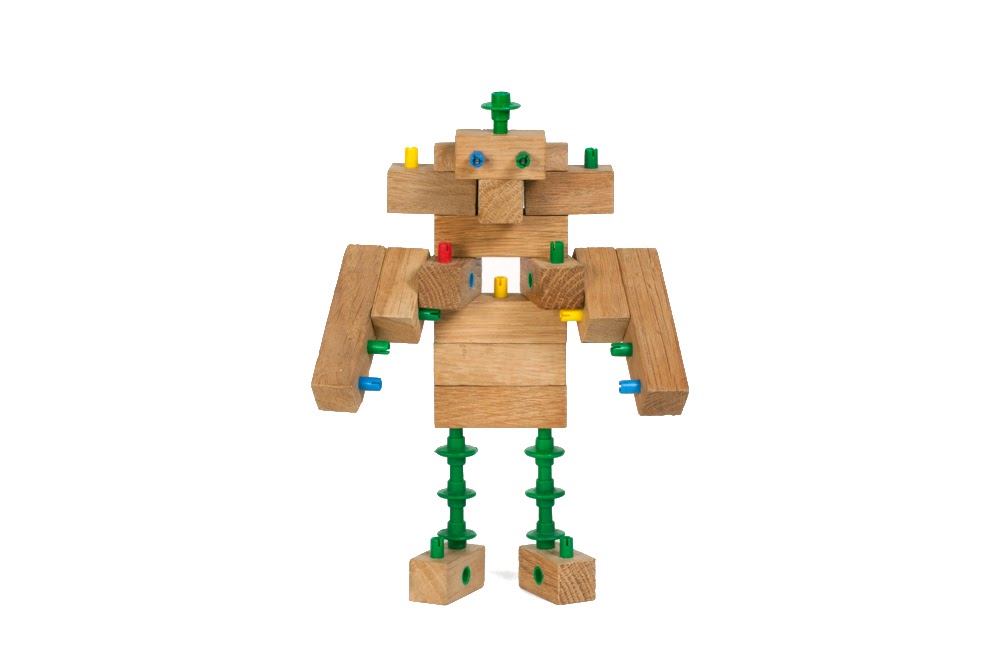
Although Israeli toymakers aren’t well-known by name, their games and concepts can be found on toy shelves across the world.
Uzi Avraham, product development manager at FoxMind, says there is demand for made-in-Israel games, best seen at the annual Spielwarenmesse International Toy Fair Nürnberg, the largest international trade fair for toys and games.
“Over there, you see Israelis walking with their trolleys filled with new designs and new ideas and we find open doors with almost every publisher,” Avraham told ISRAEL21c. “We have a lot of great talents in Israel.”
Theora Design, a small family business in Tel Aviv, has some of the world’s most popular games on its roster including Guess Who?, One Too Many, Flip Over and What’s Gnu, among dozens of others.
Ora Coster, one of the founders of Theora Design, told ISRAEL21c that she “grew up on kibbutz, in very hard times. There was nothing on kibbutz. Nobody had anything, so we made our own games.”
Wolfovitz Yaffe – who splits his time between Israel and New York — concurs that Israeli toy designers come by their creativity out of need.
“Israel, until now, never experienced abundance. And when you have nothing and have to entertain kids, you have to do it by creating games,” he says. “That’s why I think Israelis flourish with the creativity of games. Israel is a leading force in educational toys.”
Therapeutic and educational
“Toy inventor” is just the latest title Wolfovitz Yaffe is adding to his name.
He’s a motivational speaker who describes his difficult road from being one of “the most severely wounded soldiers of the Second Lebanon War in 2006” to becoming a successful entrepreneur, app developer and musician.
Wolfovitz Yaffe says the rehabilitation he underwent after his near fatal injuries drove him to develop Ollies Blocks for therapeutic use as well, especially for amputees.
“Amputees can’t play with LEGOs because of the size of the blocks, the material, the texture and the way they connect,” he says, noting his excitement upon witnessing an Israeli amputee finally being able to play building blocks with his kids.
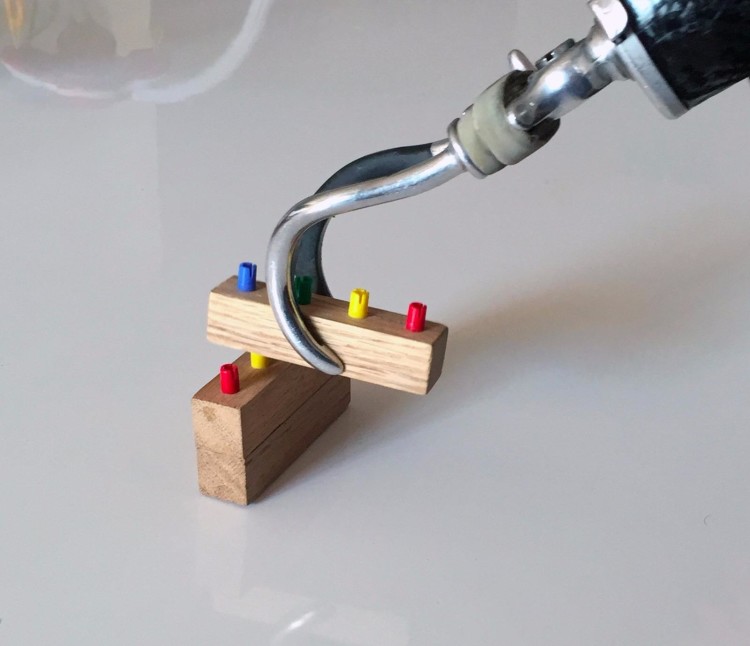
Wolfovitz Yaffe says he’s received requests from occupational therapists and hospitals for Ollies Blocks, as well as from early-childhood and special-education schools. The crowdfunding campaign offers an option to pledge toward a set of blocks for any hospital.
The campaign ends April 3, 2016. Wolfovitz Yaffe is optimistic about reaching his goal, and promises that when it is, he will build a new toy factory in the Galilee.
